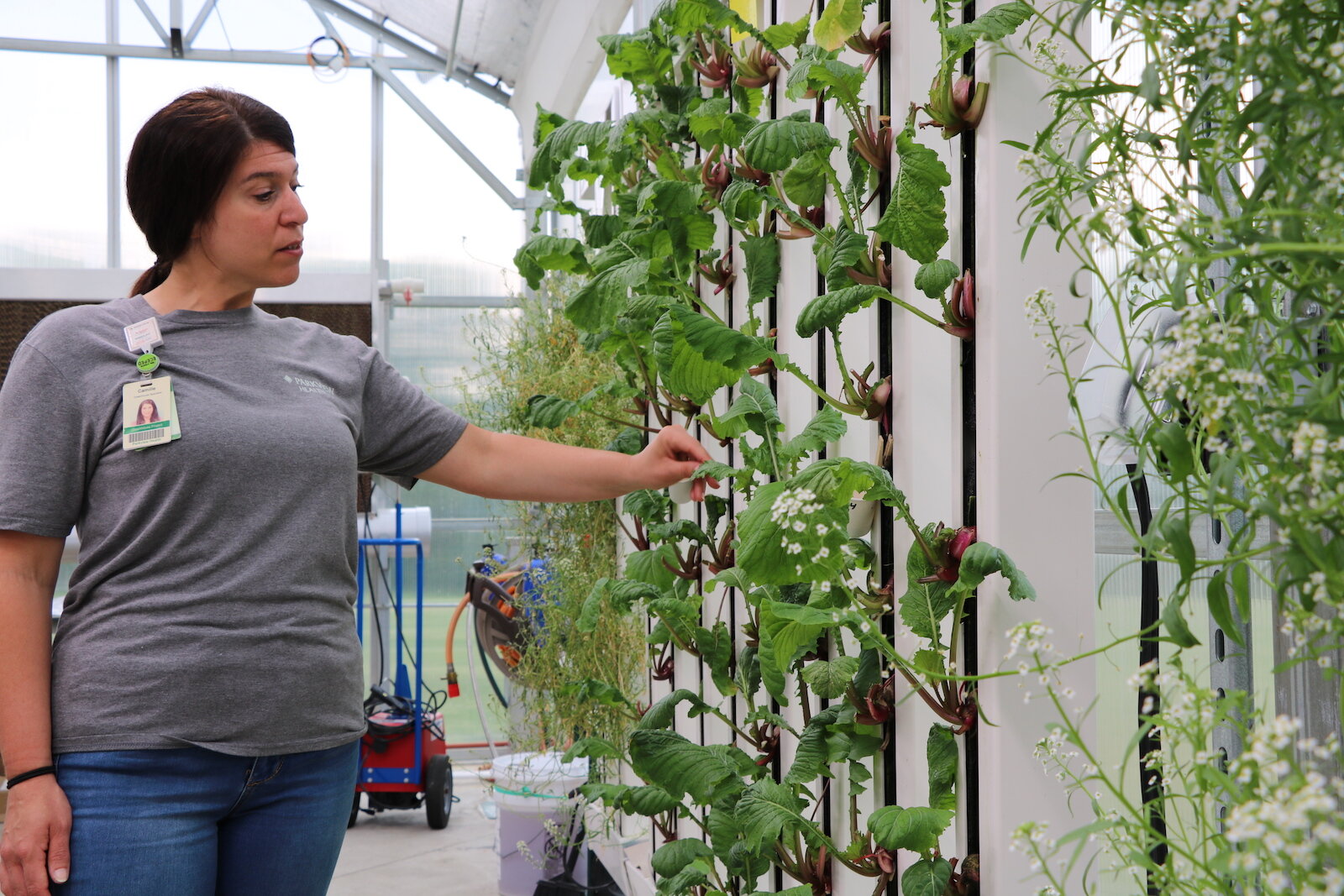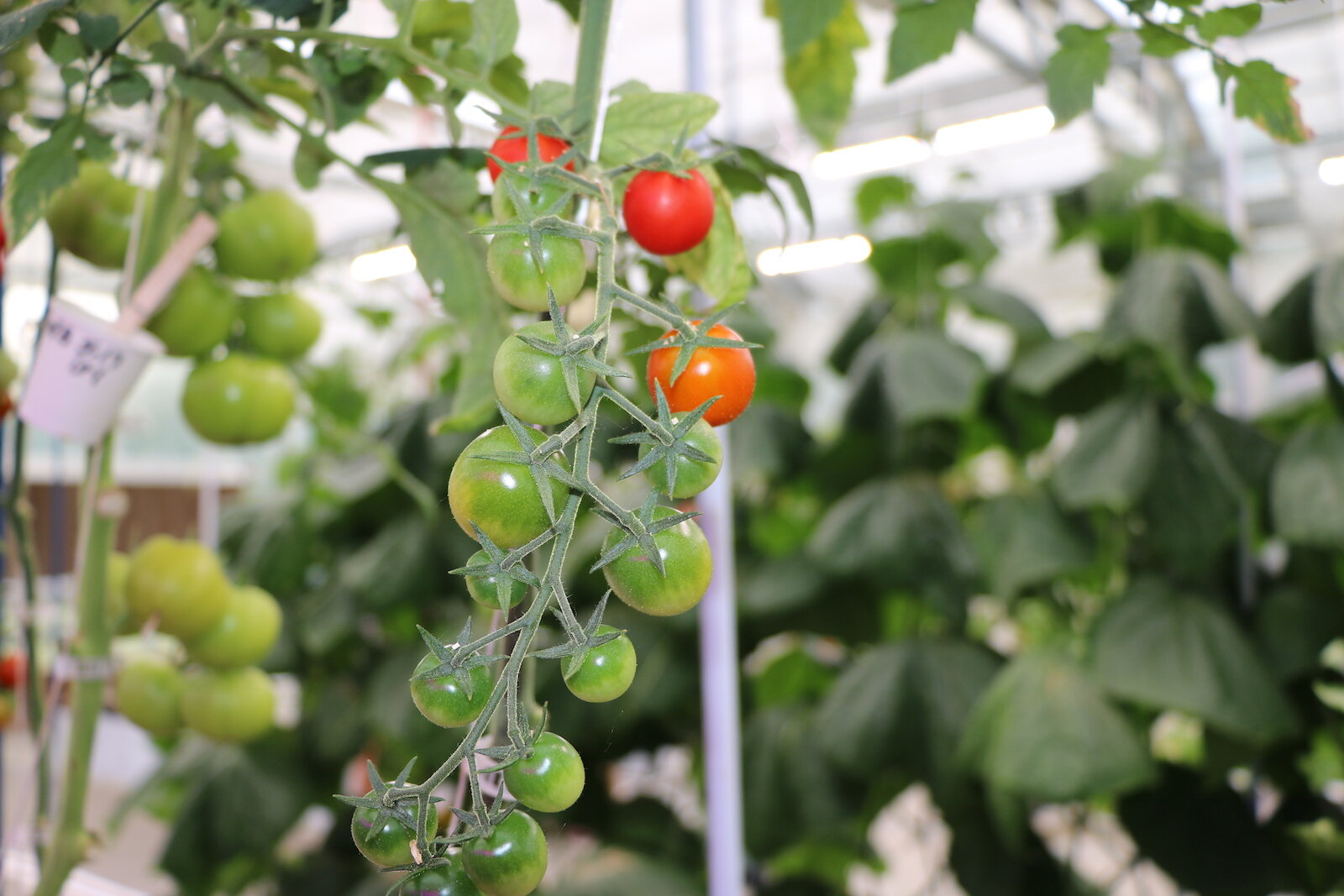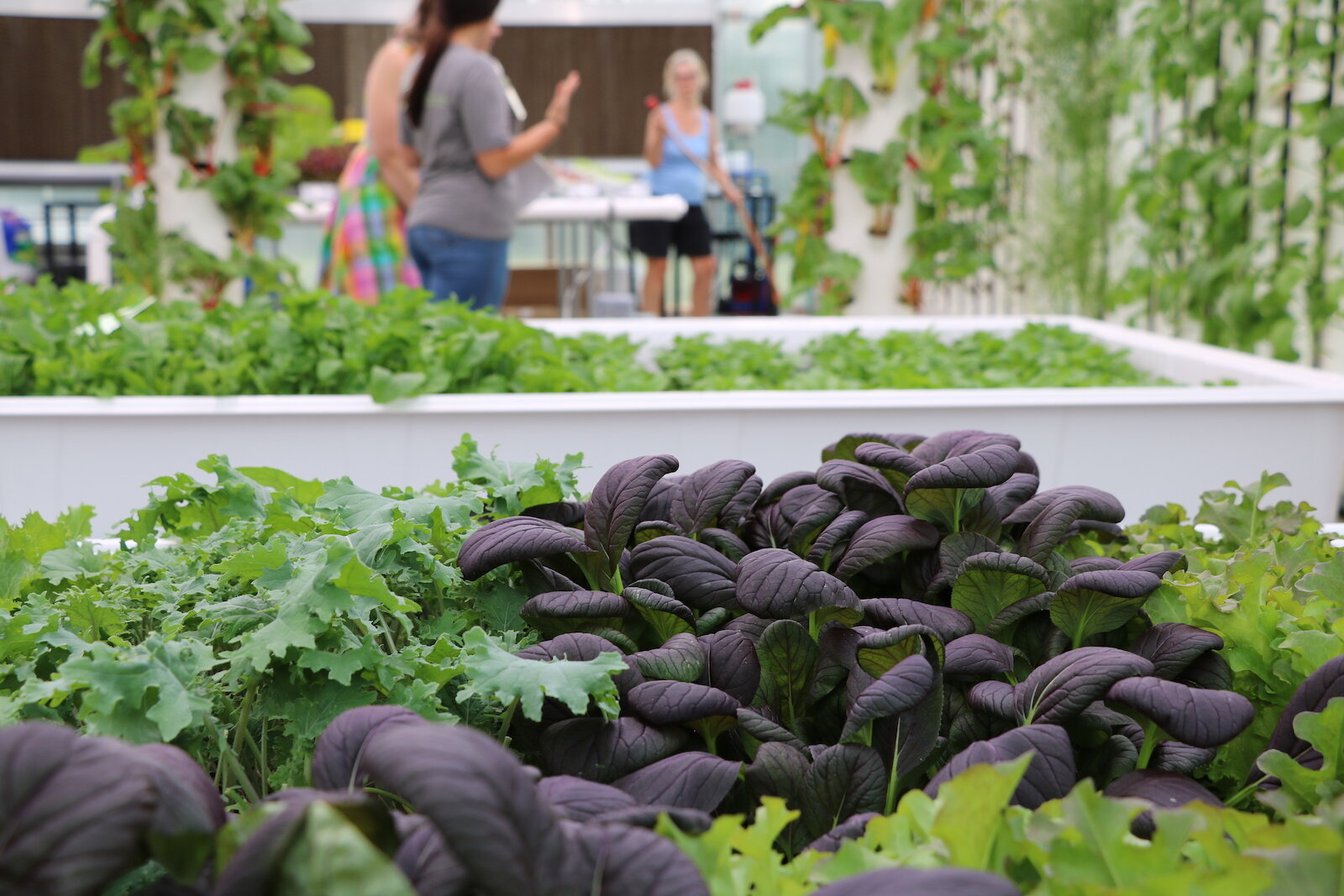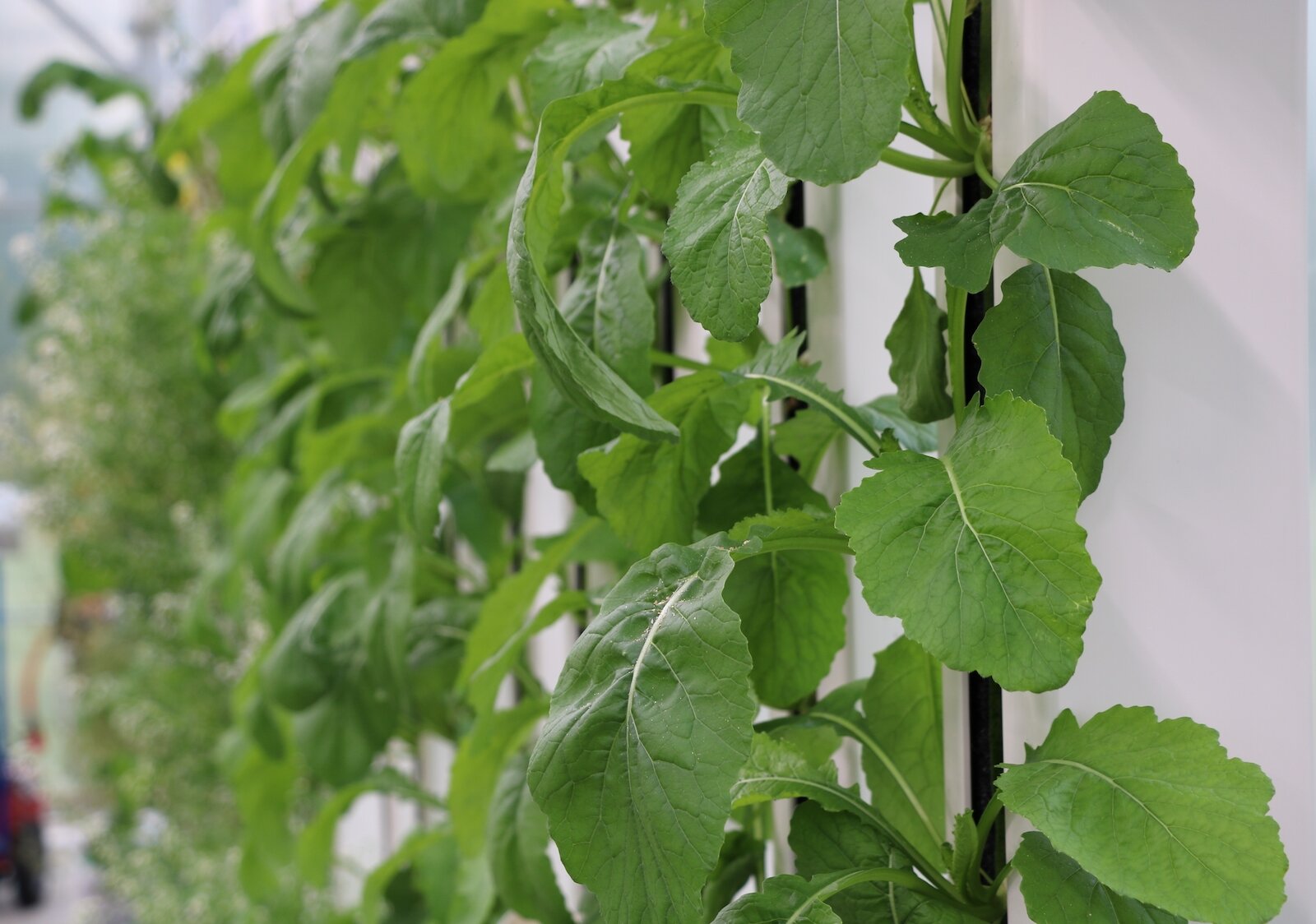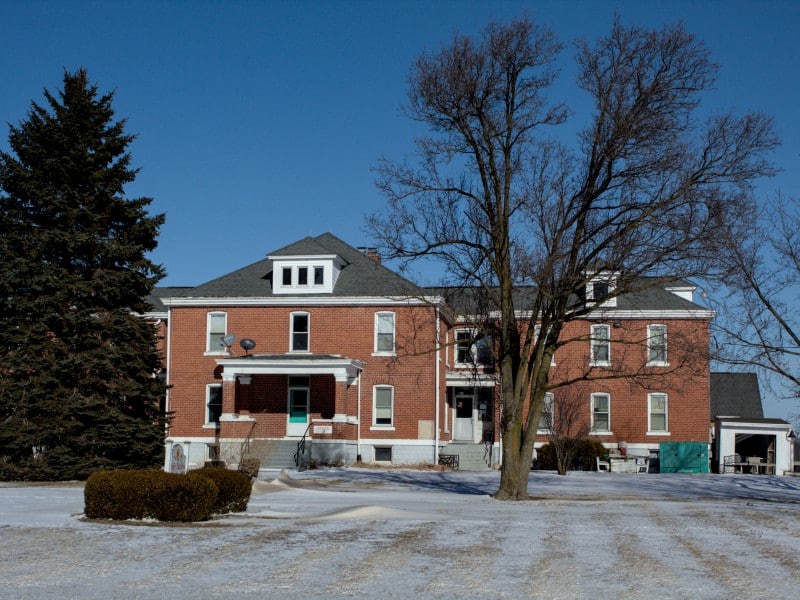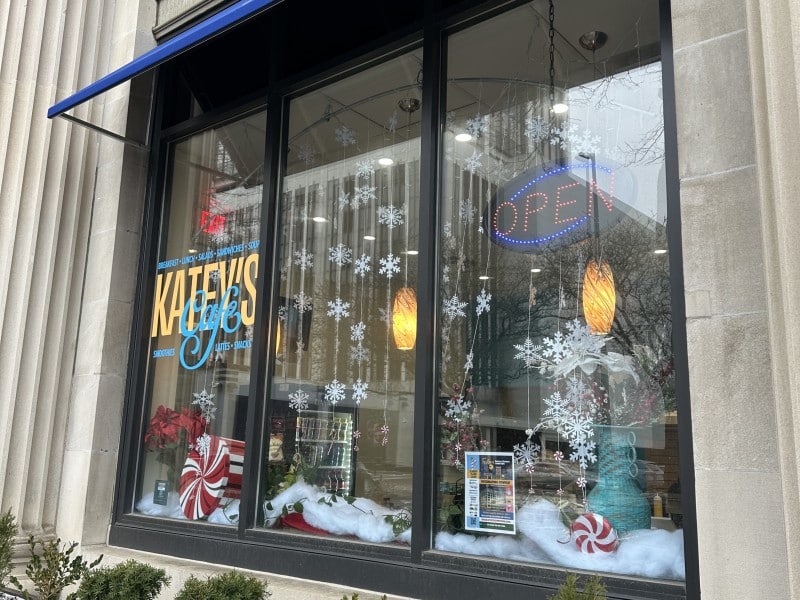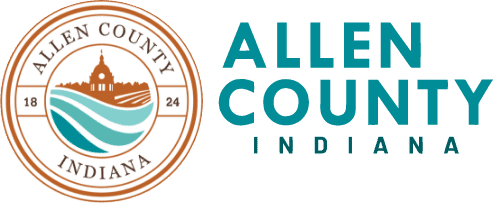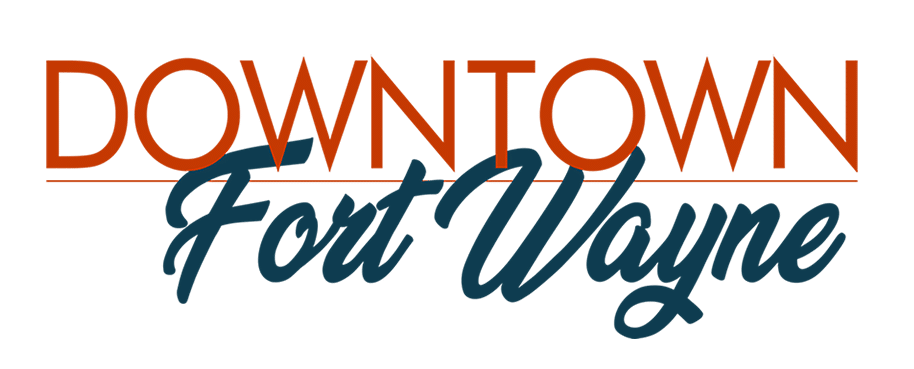Partner Partner Content Greenhouse and Kitchen provide food and education in the fight for good nutrition against hunger
“We’re trying to lessen the amount of food insecurity and teach people about sustainability, how to grow food, how to prepare food, and just about food, too."
In South Central Fort Wayne, in close proximity to hospitals, doctors’ offices, and other healthcare facilities, is a place devoted to producing and teaching residents about food for health: the Parkview Community Greenhouse and Learning Kitchen.
A wide array of produce grow both inside and out of the garden, depending on the crop. You can find garlic, tomatoes, pumpkins, eggplant, onions, brussels sprouts, cucumbers, beets, kale, bok choy, endive, lettuce, arugula, rainbow chard, bell peppers, jalapeños, okra, beets, and more.
Greenhouse Farmer Camille Schuelke says Parkview launched the greenhouse and kitchen about three-and-a-half years ago, and its location at 1716 Beacon St. in the 46805 zip code is strategic.
“We are located in a food desert,” Schuelke says. “Also, we are directly located next to primary zip codes that have the highest percentage of food insecurity (in Fort Wayne).”
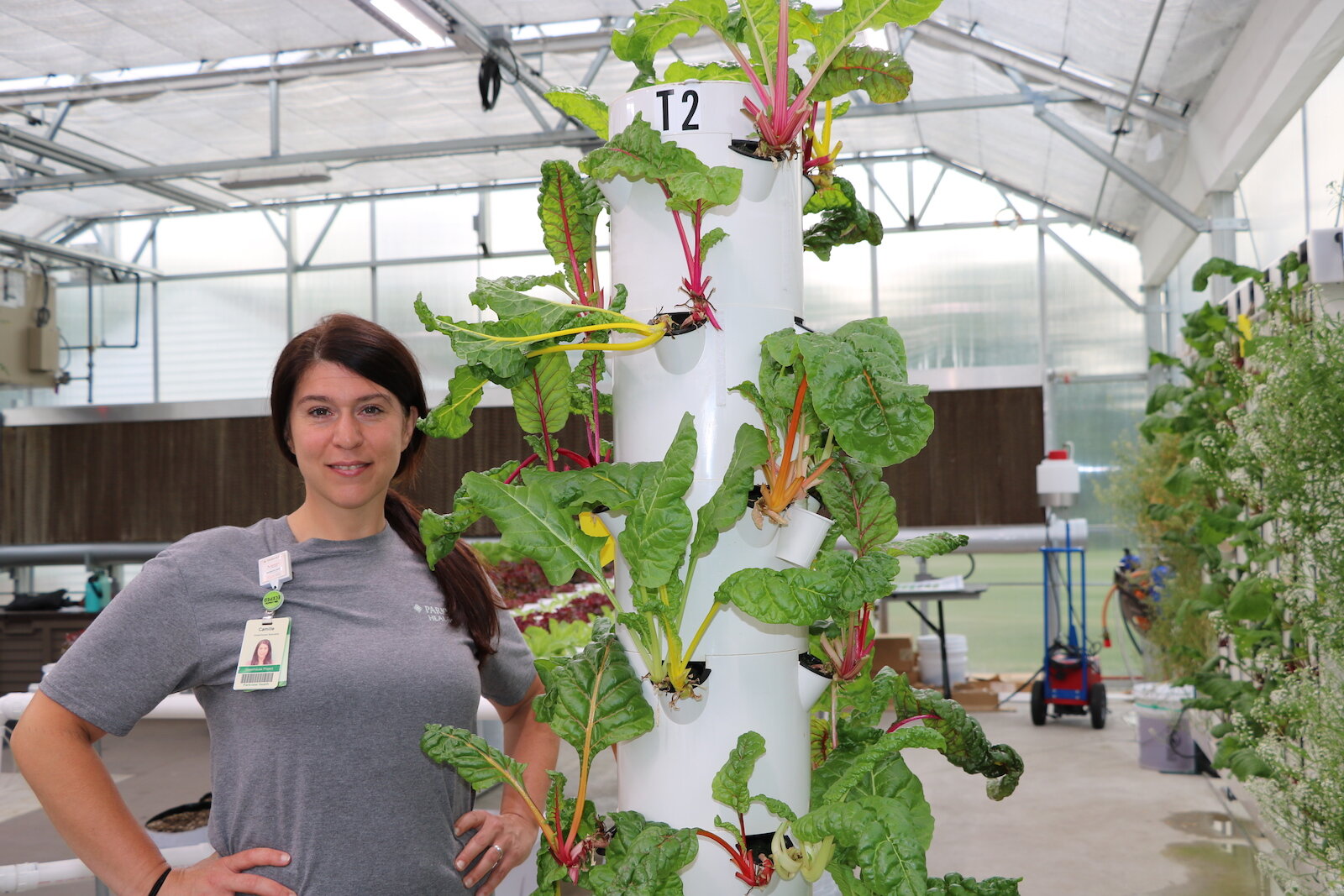
About 14 percent of Allen County residents suffer from food insecurity, according to the St. Joseph Community Health Foundation. As inflation rises across the U.S., the price of food and groceries is increasing, too. According to the May Consumer Price Index, year-over-year inflation rates in the Midwest once again outpaced the nation at 8.8 percent compared to 8.6 percent. The price of food at home increased from 13.9 percent from May 2021 to May 2022, compared to an 11.9 percent increase nationally.
Reflecting on these numbers, Rachel Blakeman, Director of Purdue University Fort Wayne’s Community Research Institute, says, “These increased costs are hitting consumers in necessary purchases, namely food and energy, and seem to have no end in sight.”
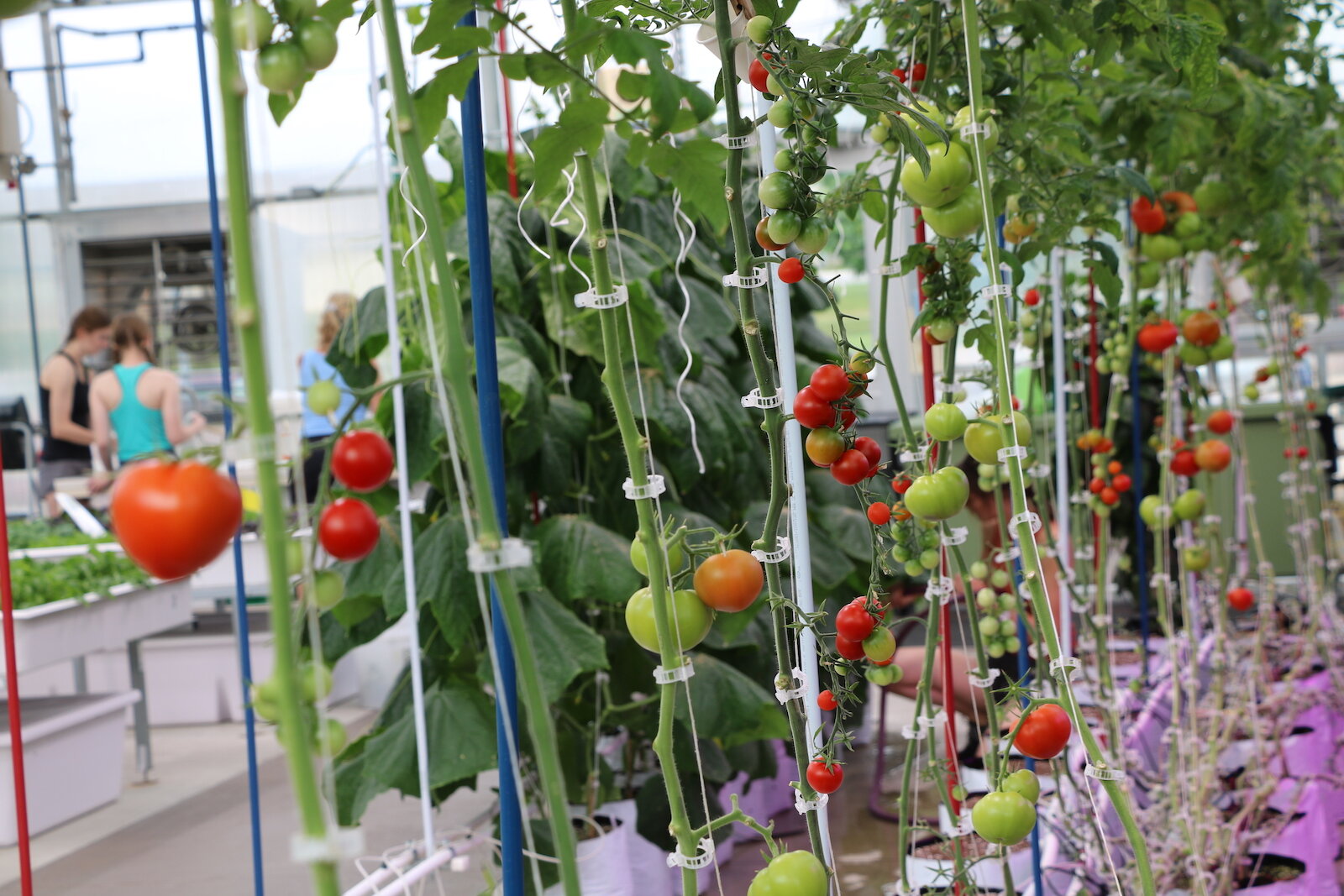
Schuelke says her team at the Greenhouse and Learning Kitchen are working to combat these preexisting—and increasing—challenges.
“We’re trying to lessen the amount of food insecurity and teach people about sustainability, how to grow food, how to prepare food, and just about food, too,” she says.
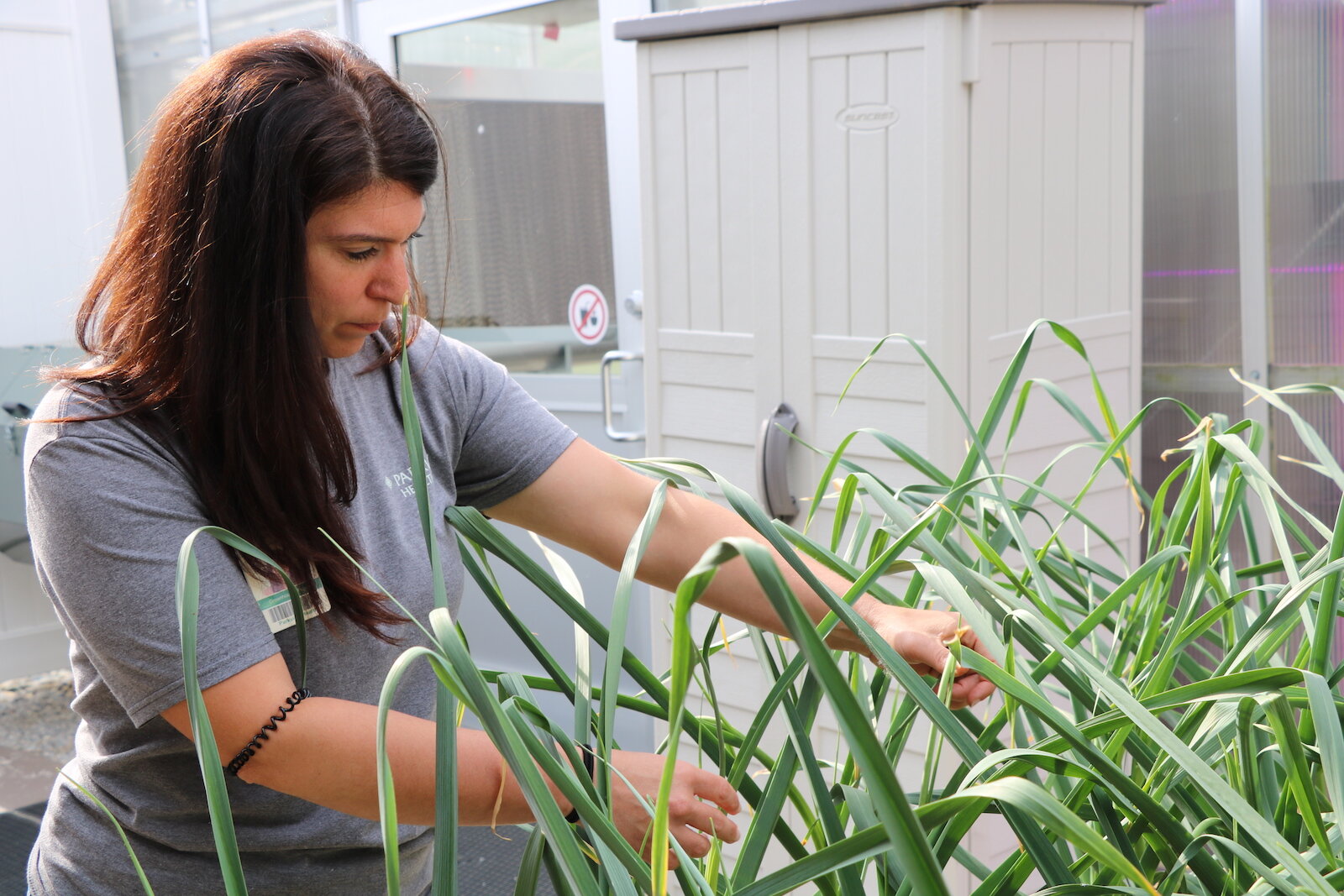
With these goals in mind, various educational efforts are underway at the Parkview Community Greenhouse and Learning Kitchen that are geared toward kids, schools, teachers, and the general public.
School partnerships
Schuelke serves on the Parkview Farm to School board, as does Rachel Stohlman, a Dietitian with the Greenhouse and Learning Kitchen who specializes in food insecurity and food access.
“We work with teachers and other schools on helping them procure local food or even have their own garden,” says Schuelke. “We’re working on teaching them how to put together a nutrition and gardening curriculum specific to our area. We also work with some of our surrounding schools.”
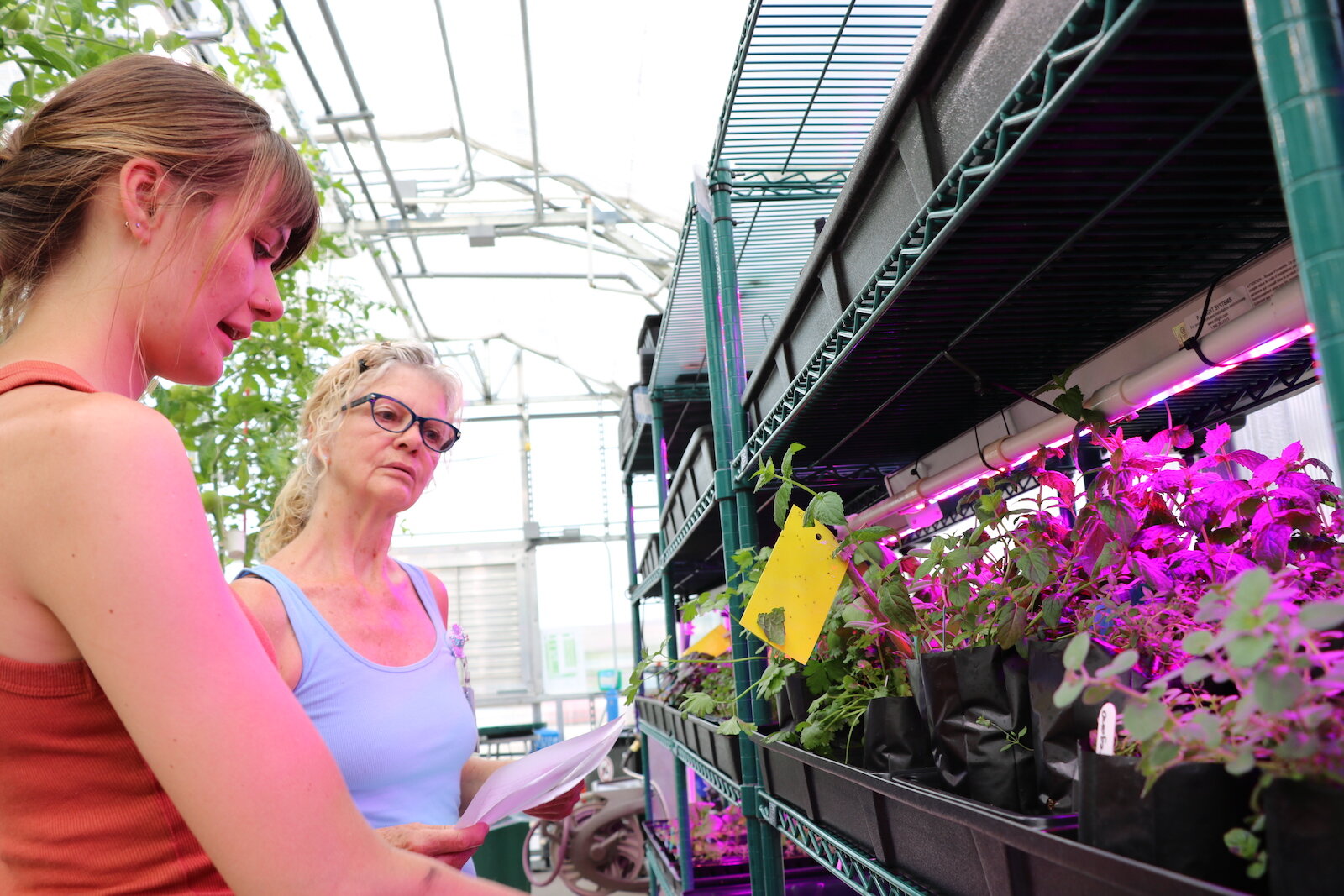
The Farm Friends program is a farm-to-fork educational effort designed for middle schoolers.
Recognizing that one-in-five children in Allen County are food insecure, Stohlman says that Farm Friends is an important teaching tool to help kids learn about nutrition and access to good food. Such access, she says, is especially important during the summer when school is out because, for a lot of children, their meals come from school. Thus, there is a need to teach them how simple, delicious, and nutritious food can be made at home.
Kitchen classes
Stohlman teaches a variety of classes in the Learning Kitchen. She’s currently teaching a class about in-season produce, in which participants learn how to utilize fruits and vegetables and the nutritional value these foods provide.
“I also point out the fact that, if something is in season, it is going to be a little bit cheaper at the market and will also likely be seen at any of the farmers markets,” Stohlman says.
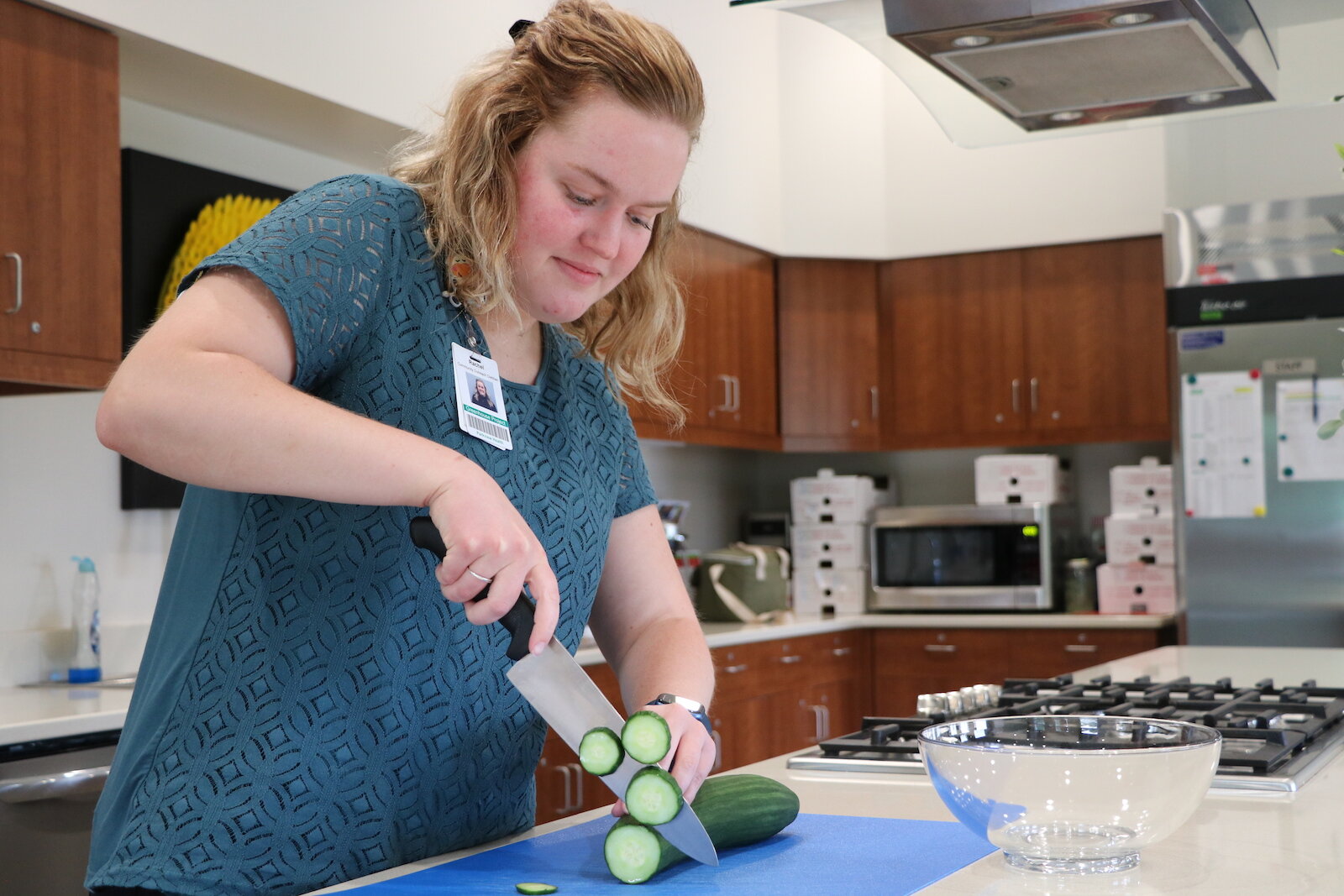
Around the world, regions known as “Blue Zones” are places identified by scientists that have the highest concentrations of longer-lived people. In addition to food insecure areas, these areas are another topic Stohlman focuses on.
“I teach about what foods they have in the Blue Zones, along with habits (that contribute to their longevity), as well,” Stohlman says. “Each month, I’m touching on a different area of the Blue Zone.”
Rx: Veggies for HEALing
Education and food as medicine go hand-in-hand. Through Parkview’s Veggie Rx program, health-compromised patients, including those with prediabetes, diabetes, and/or cardiac disease, as well as underserved pregnant women, have access to fresh, locally grown fruits and vegetables. To help prevent challenges before they begin, doctors give patients a prescription for produce (hence the name “Veggie Rx”). Participants must attend two classes and engage in two remote consults to receive six monthly vouchers, each worth $50, for fresh fruits and vegetables. The program was recently awarded a USDA grant of close to half-a-million dollars.
Those six vouchers, together worth $300, will go a long way at Parkview’s HEAL (Healthy Eating, Active Living) markets, a joint partnership between the healthcare system and the St. Joseph Community Health Foundation. HEAL markets, which take place at McCormick Place Apartments, the Parkview Greenhouse, and the Southside Market on various days throughout the week, offer fresh fruits and vegetables grown at the Parkview greenhouse and by local farmers.
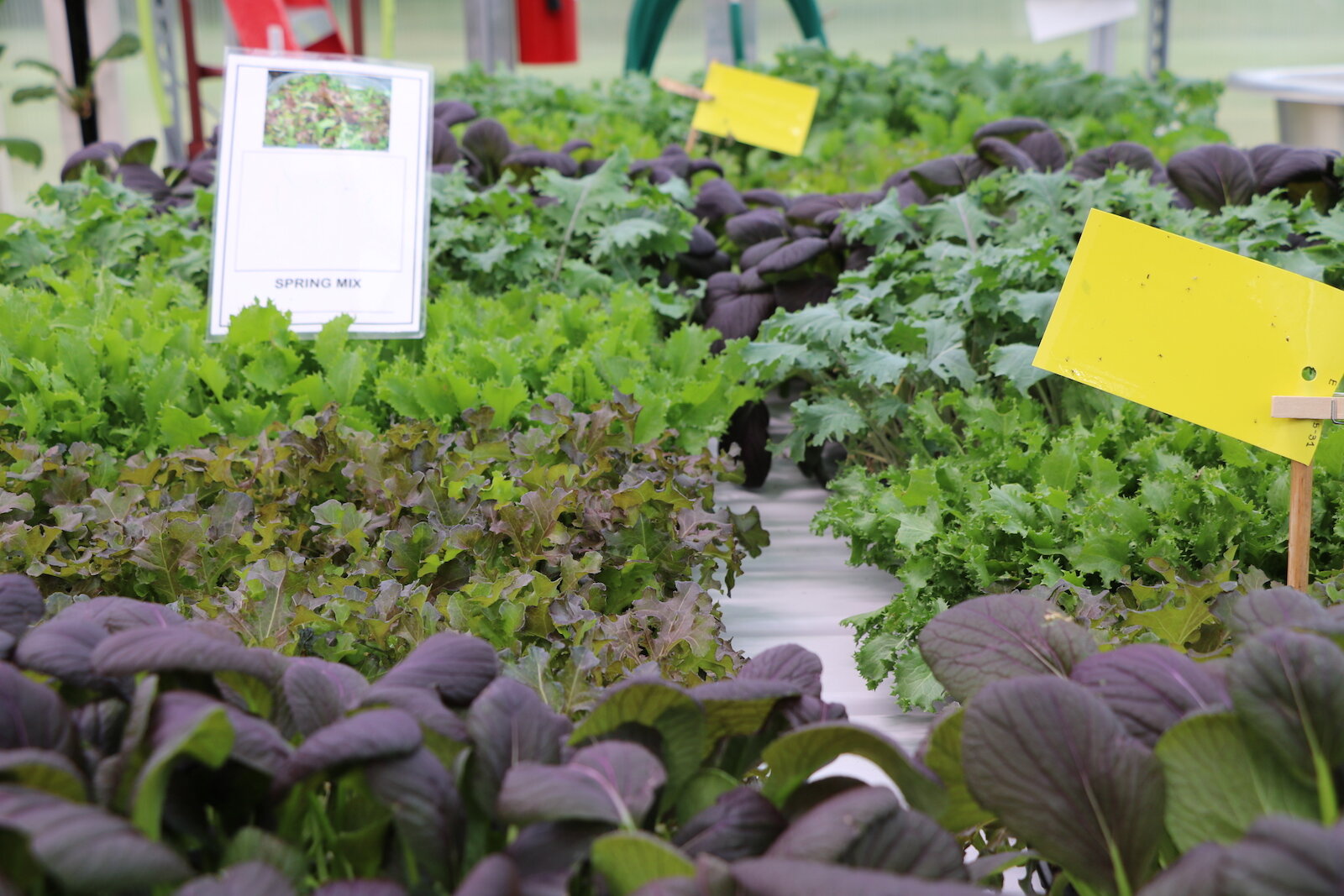
Anyone can shop at these markets, which accept WIC, SNAP, and senior vouchers, as well as Double Up Food Bucks, which doubles a buyer’s purchasing power.
“If someone brings $10 to the market, we’ll provide an extra $10 to that individual so they can get $20 worth of produce,” says Stohlman. “That is a great access point for individuals in the food insecure population to get healthy foods, and it also helps with the local economy—farmers that are at our HEAL markets are individuals that grow produce around here.”
Other endeavors
Parkview recently received a $25,000 grant from No Kid Hungry to fight food insecurity among local families with young children. Recipient families will receive boxes of produce every month, along with meal kits, recipes, and food storage tips.
While food from the greenhouse is not served in Parkview hospitals, a different kind of health- and community-related partnership is in the works.
“We’re working on developing a horticultural therapy program with Parkview Behavioral Health and one of our other (nearby) neighbors, so we’re really happy that we’ve been getting to know our neighbors a little bit,” says Schuelke.
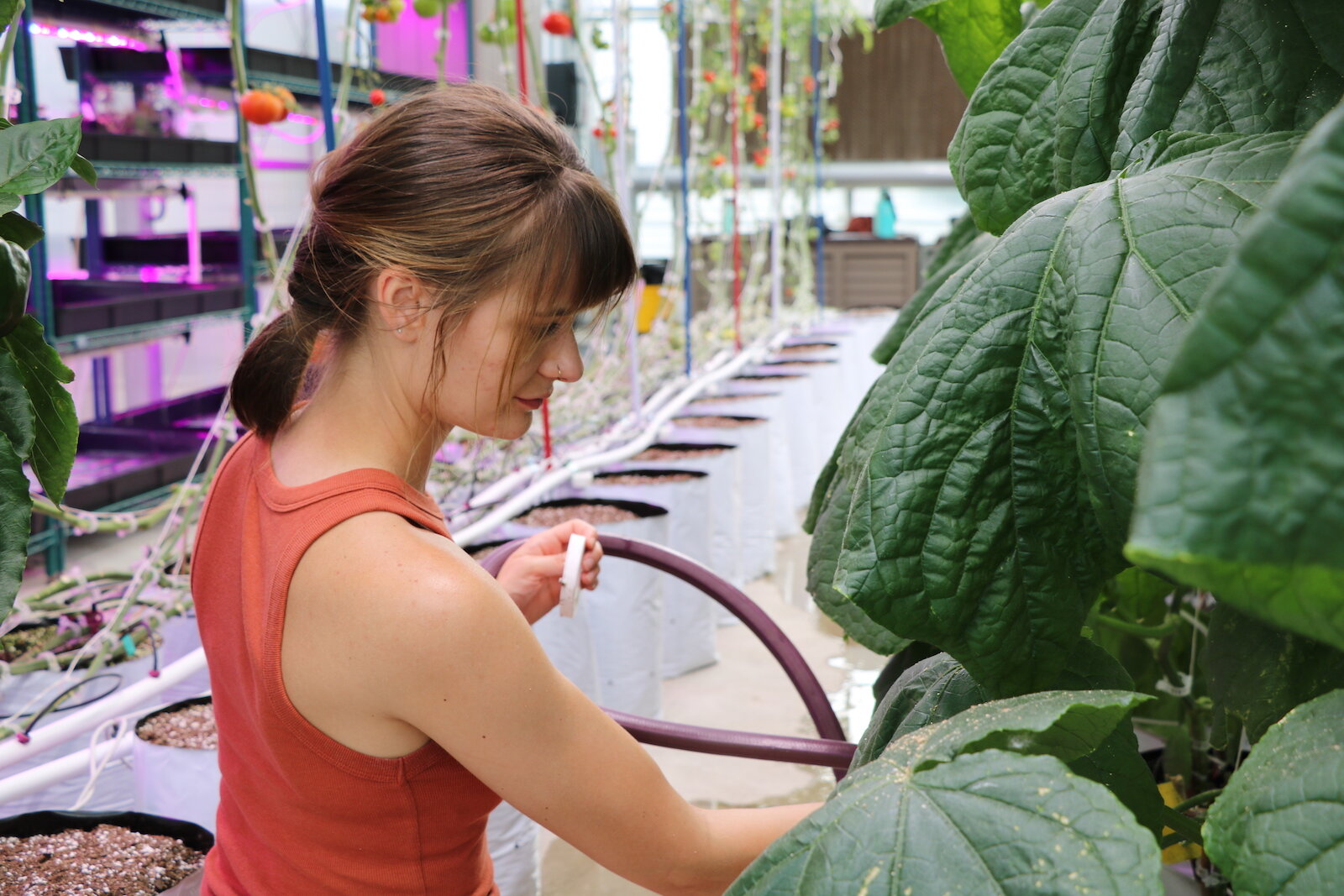
Stohlman says that a culinary medicine program is being planned, too.
“Essentially, it will be a four-week course where we get (physicians and healthcare providers) immersed into the kitchen and get their hands involved into cooking and how nutrition has such a huge role in health,” she says.
For those who like a more informal, unscheduled approach, the community greenhouse and grounds will be open for “pop-ins” from 4–6 p.m. on July 14, July 21, August 18, September 22, and October 15.
Find a HEAL Market near you
HEAL Markets are open:
- Wednesdays (July 13 to September 28) 5 to 7 p.m. at McCormick Place Apartments, 2811 McCormick Ave., 46803
- Thursdays (July 14 to October 27) 4 to 6 p.m. at Parkview Health Greenhouse, 1716 Beacon St., 46805
- Saturdays (July 16 to October 29) 8 a.m. to noon at Southside Market, 3300 Warsaw St., 46806

